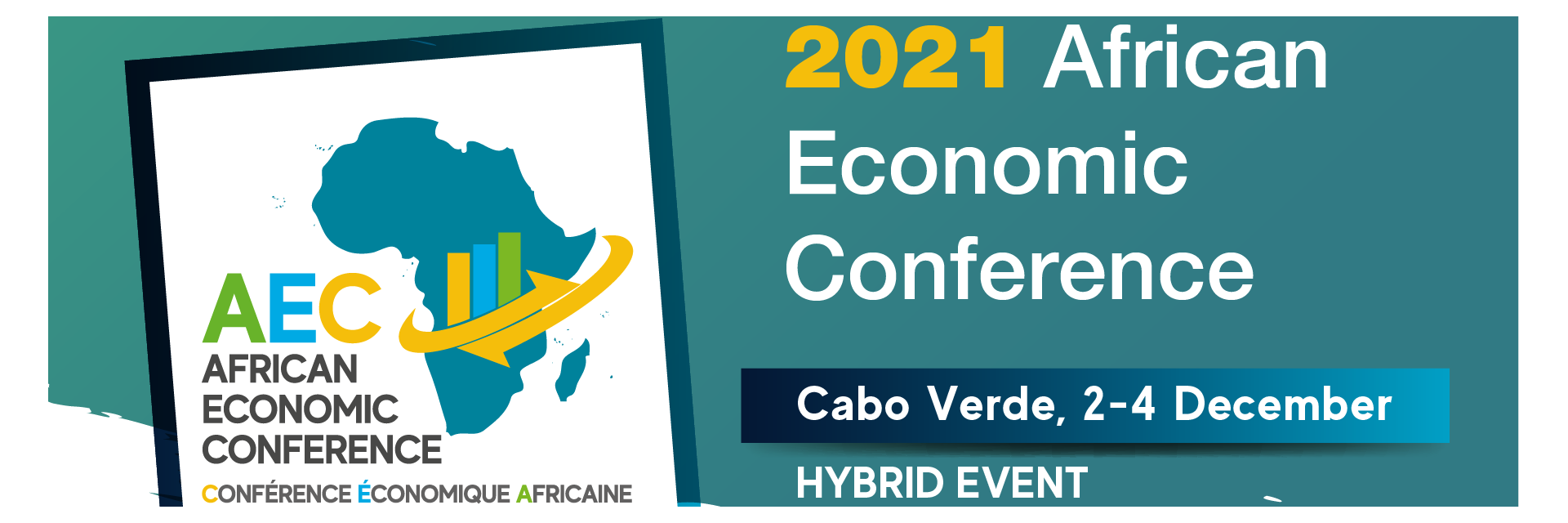WHAT? African Economic Conference 2021: “Financing Africa’s post-COVID-19 development.” The flagship annual economic high-level meeting organised by the United Nations Development Programme, the African Development Bank and the United Nations Economic Commission for Africa.
WHEN? 2-4 December 2021
WHERE? In Sal Island, Cabo Verde and virtually (hybrid conference)
|
WHO? |
|
New York/Addis Ababa/Abidjan, 16 November - African Heads of State, ministers, leaders of the private sector, development actors and academics will be gathering in Cabo Verde from 2 to 4 December for the African Economic Conference. Developing new ways of financing the post-COVID-19 recovery and accelerating development in Africa will be the focus of many conversations in this year's flagship economic event.
For three days, African leaders, projects leaders and thinkers will discuss innovative and sustainable options to finance Africa’s post-COVID development. They will reimagine development financing, discuss the reform of Africa’s financial systems to meet development challenges and whether Africa is on the verge of a new debt crisis.
Papers from prominent researchers were selected through an open competition and will provide innovative ideas to mobilize domestic public and private resources in the age of the digital revolution, enhance Africa’s position in the international financial system, review the role of public development banks, explore sustainable finance solutions, regional integration and the role of the global financial safety net; policy options for managing capital flow volatility; financial regulatory reforms and the role of climate risks.
The COVID-19 crisis has exacerbated the pressure on Africa’s development financing challenges by making public finances more strained, debt unsustainable, and foreign direct investment retracting. Across Africa, the COVID-19 crisis has left more than 30 million people in extreme poverty, living on less than $1.90 a day. To combat the effects of populations plunging into extreme poverty, governments on the continent have announced fiscal stimulus packages ranging in cost from about 0.02 per cent of GDP to about 10.4 per cent of GDP. While these are lifesaving interventions, African governments need significant additional gross financing to respond to these needs in 2022. These gross financing needs exceed the critical threshold of 15 per cent GDP for most countries.
Access to international capital markets, a growing debt financing source for many African countries, has declined as investors’ perception of risks increases. Capital flight from Africa, estimated at over $90 billion since January 2020, and investor risk aversion have caused volatile market movements. Tightening global financing conditions make it more expensive for governments to get the financing they need to recover from the pandemic and refinance maturing debt. Domestic sources of financing such as tax and non-tax revenues, which were already modest, are expected to contract as GDP drops, and exports and imports decline. The supply and demand shock caused by the COVID–19 pandemic directly impacted the revenues of many African governments through reduced exports earnings and lower domestic tax revenues.
Media registration is open for physical or virtual participation:
-
Register on bit.ly/MediaAfricanEcon
-
Write to eve.sabbagh@undp.org
For more information and interview requests, please contact:
Eve Sabbagh, Strategic Communication Specialist, UNDP, eve.sabbagh@undp.org, +1-484-9045730
Sophia Denekew, Media Relations, ECA, denekews.uneca@un.org, +251-911-19-76-96
Emeka Anuforo, Communication and External Relations Department, African Development Bank, e.anuforo@afdb.org
###
About UNDP
UNDP is the leading United Nations organization fighting to end the injustice of poverty, inequality, and climate change. Working with our broad network of experts and partners in 170 countries, we help nations to build integrated, lasting solutions for people and planet.
Learn more at undp.org or follow at @UNDP.
About the African Development Bank
The African Development Bank Group is Africa’s premier development finance institution. It comprises three distinct entities: the African Development Bank, the African Development Fund, and the Nigeria Trust Fund. On the ground in 41 African countries with an external office in Japan, the Bank contributes to the economic development and the social progress of its 54 regional member states.
About (ECA)
Established by the Economic and Social Council (ECOSOC) of the United Nations (UN) in 1958 as one of the UN’s five regional commissions, the United Nations Economic Commission for Africa’s (ECA’s) mandate is to promote the economic and social development of its Member States, foster intraregional integration and promote international cooperation for Africa’s development. ECA is made up of 54 Member States and plays a dual role as a regional arm of the UN and as a key component of the African institutional landscape.
For more information, please visit: www.uneca.org

